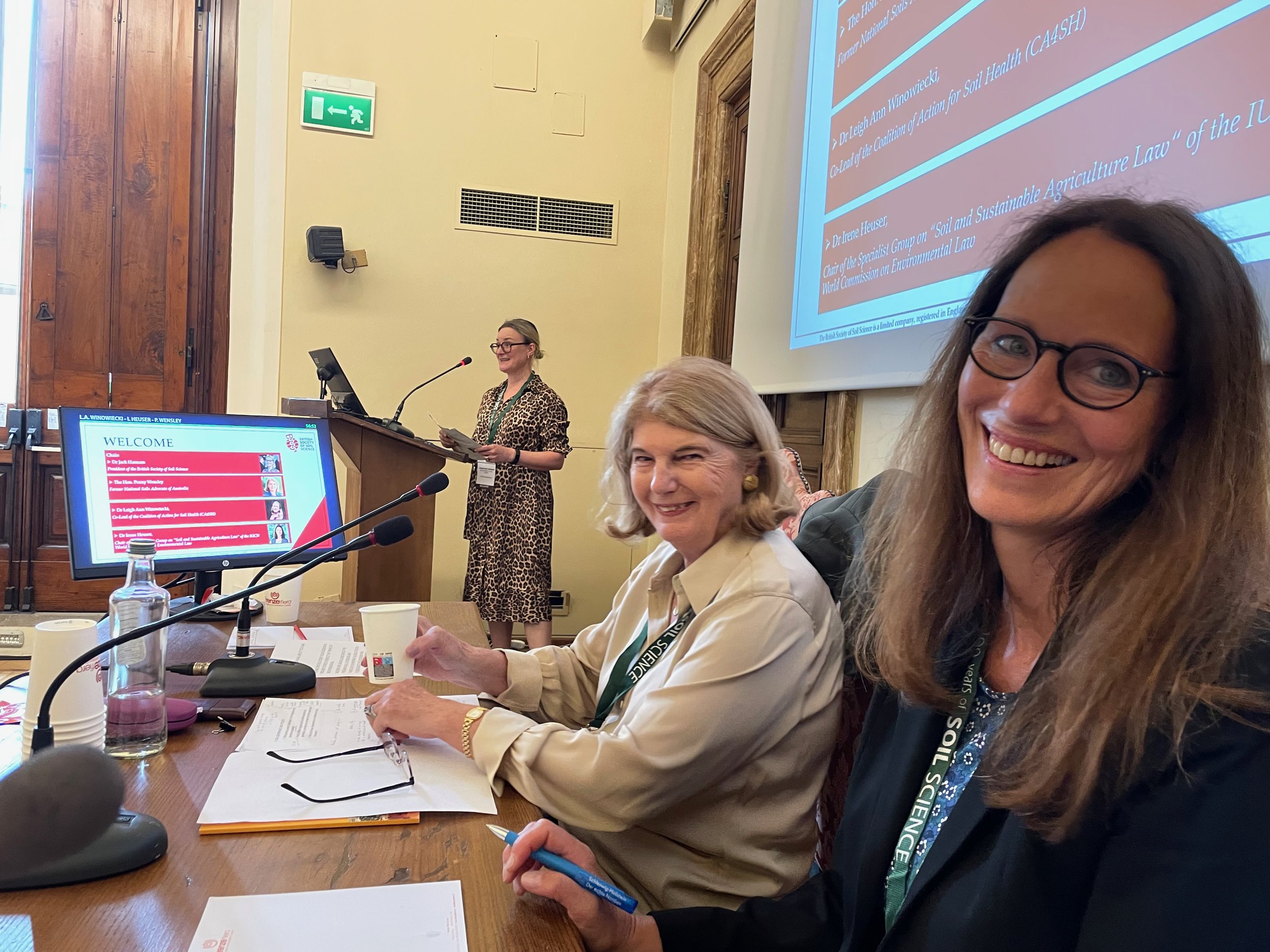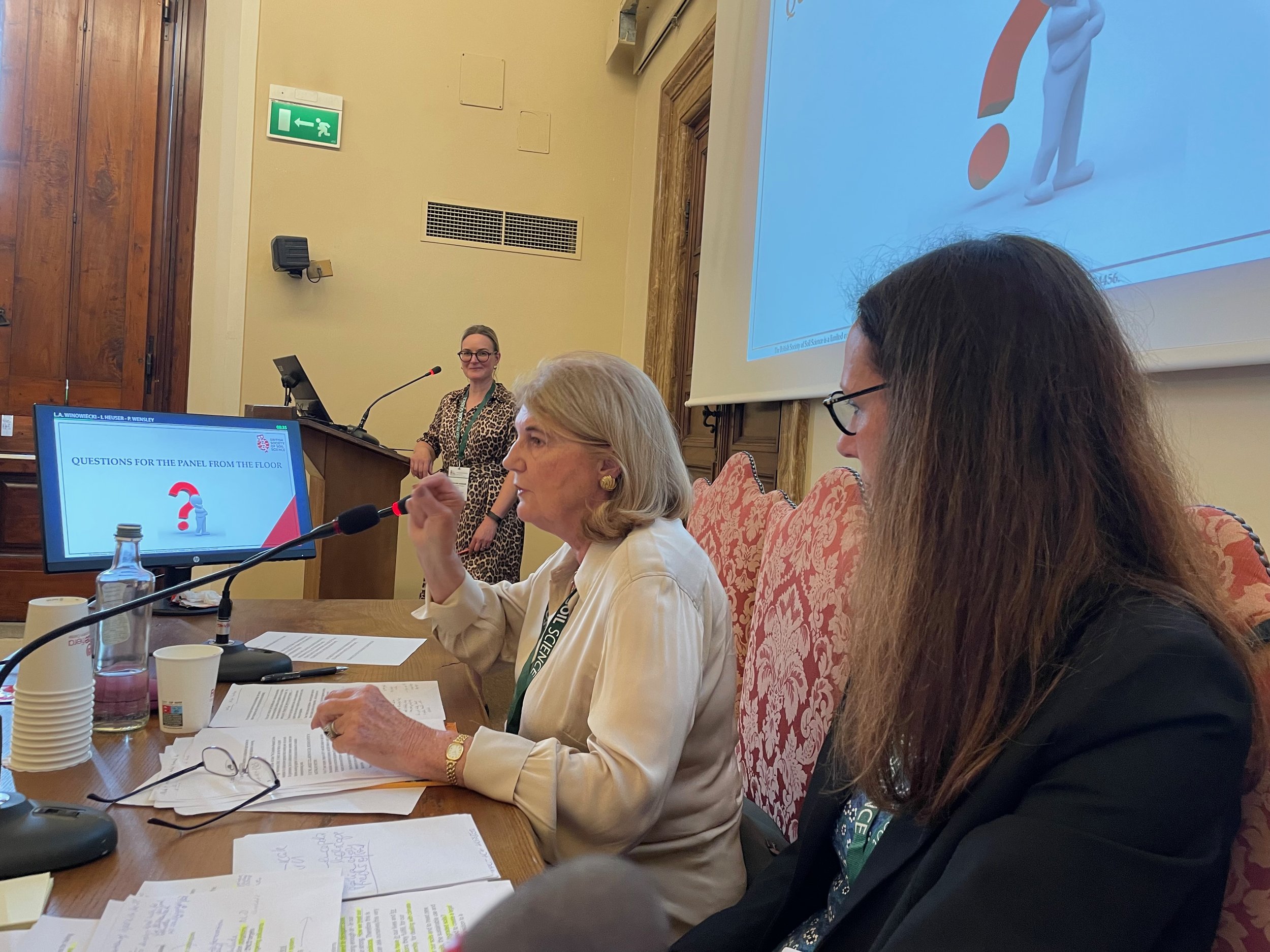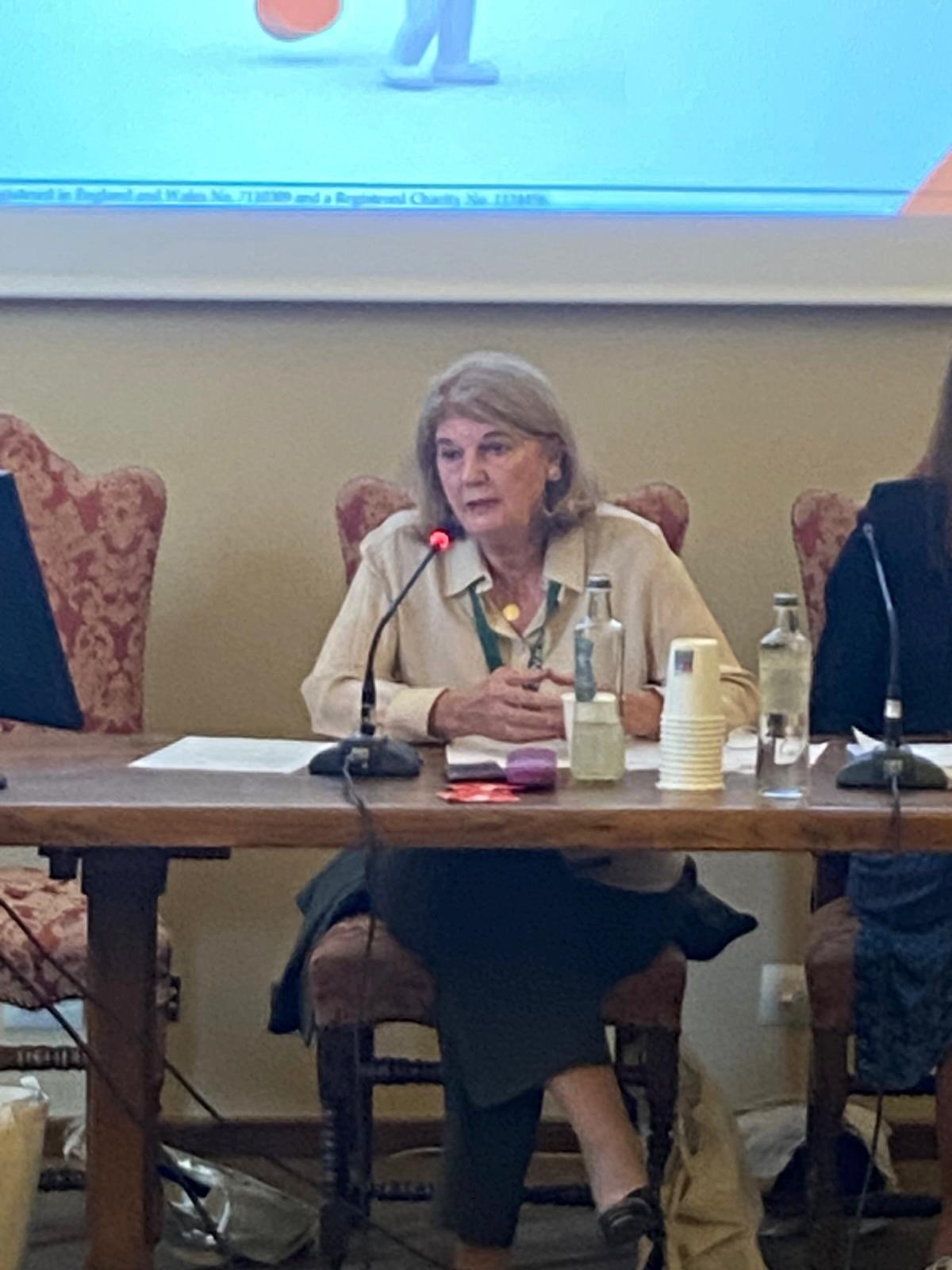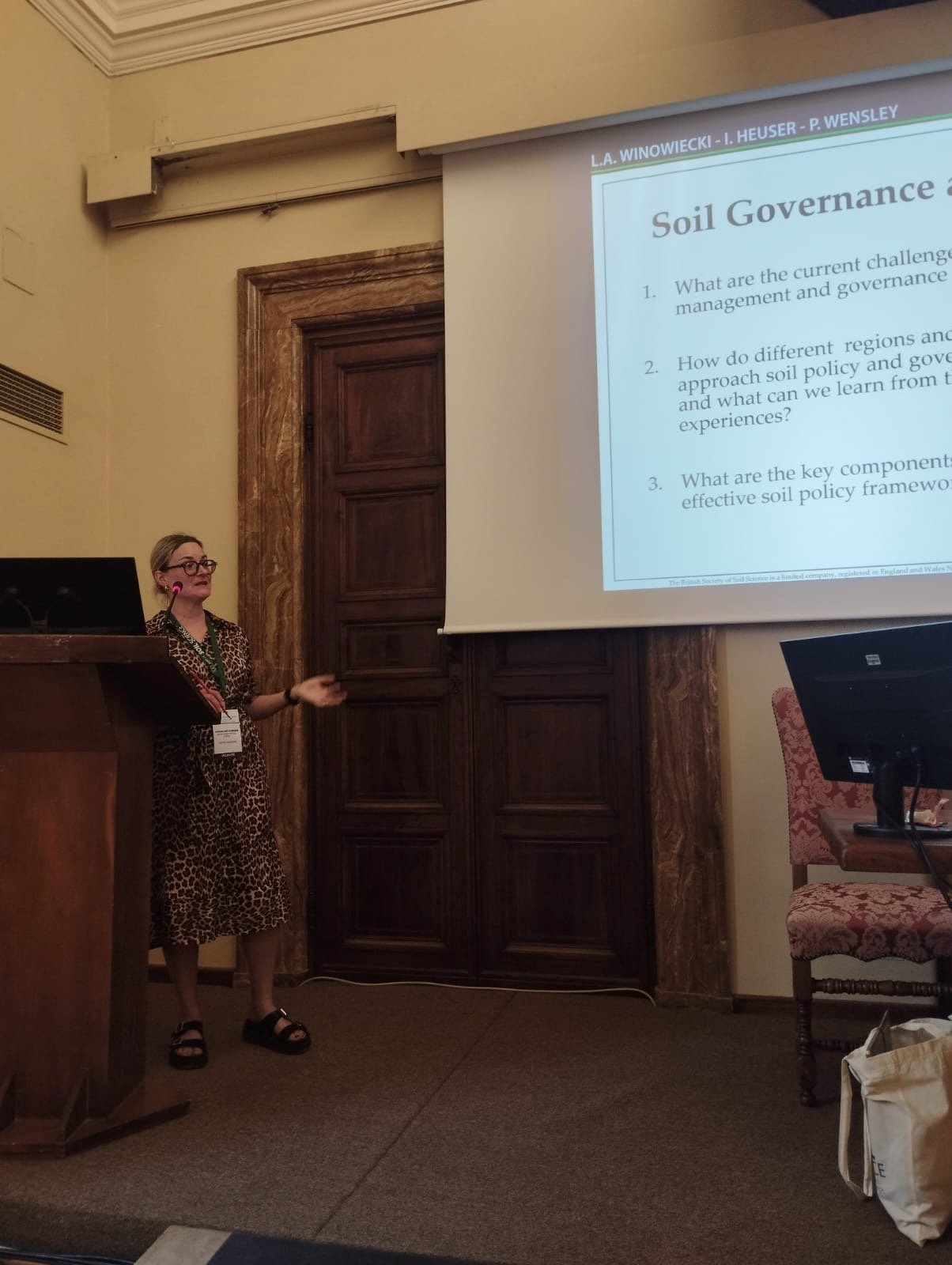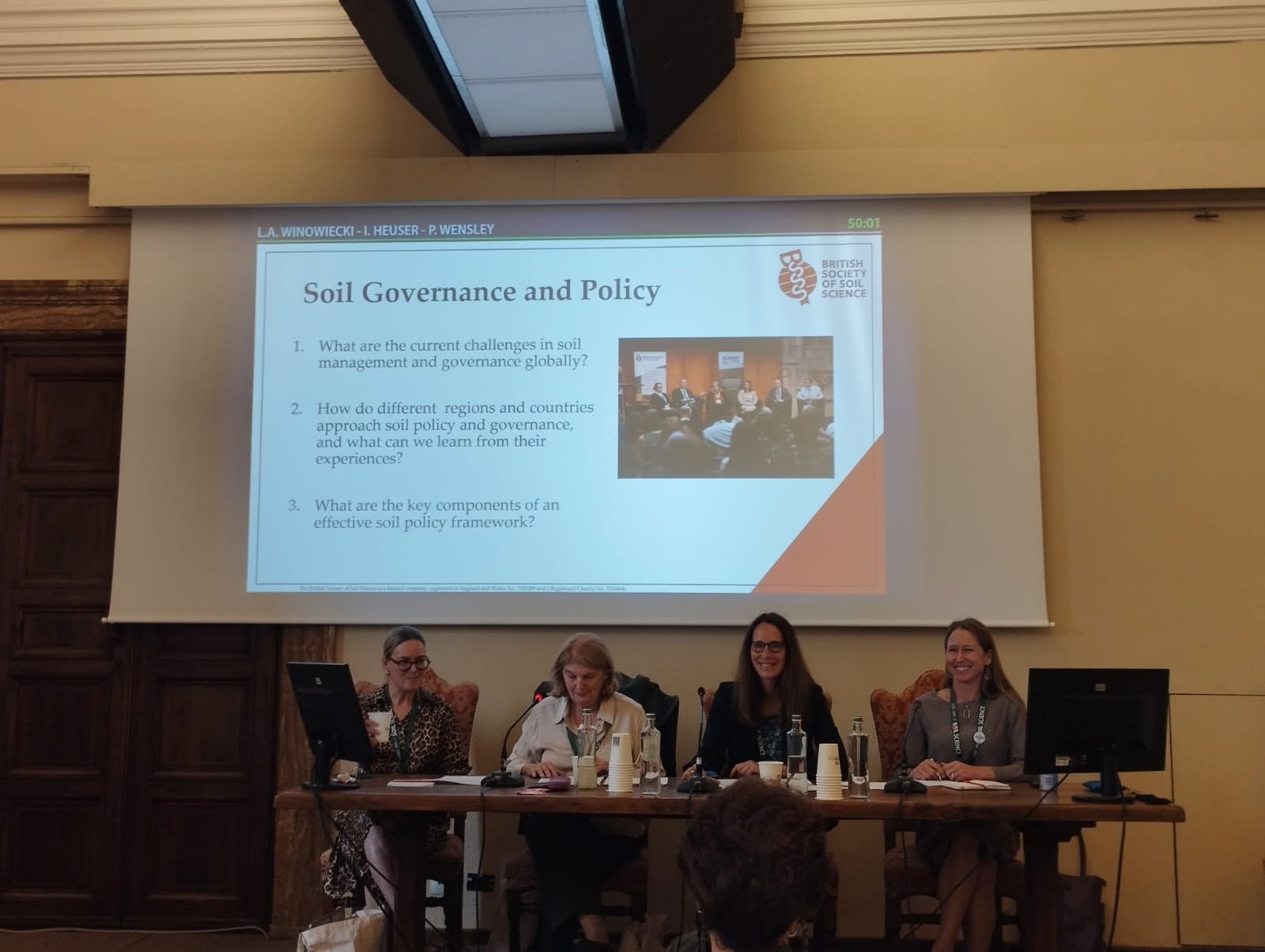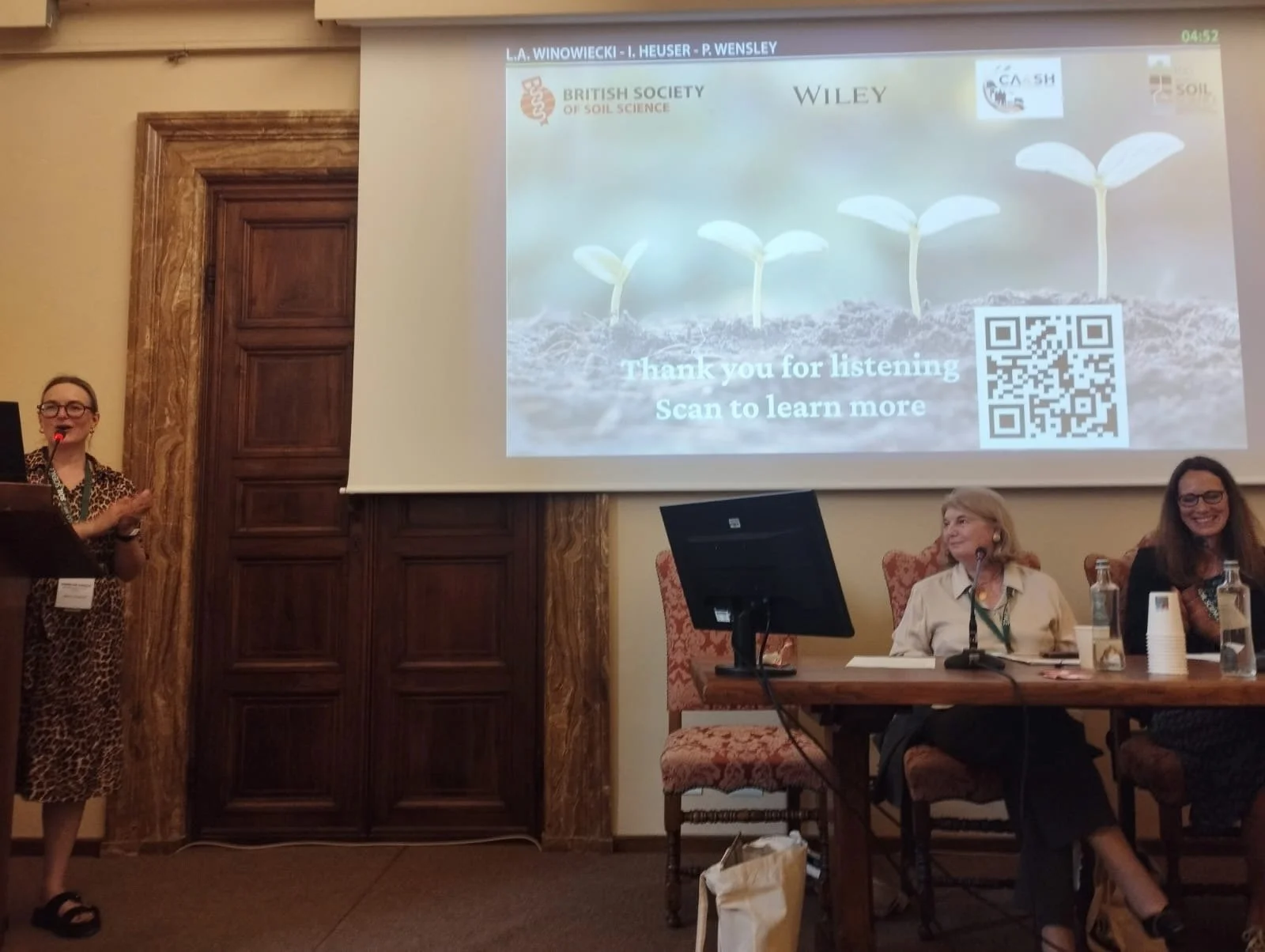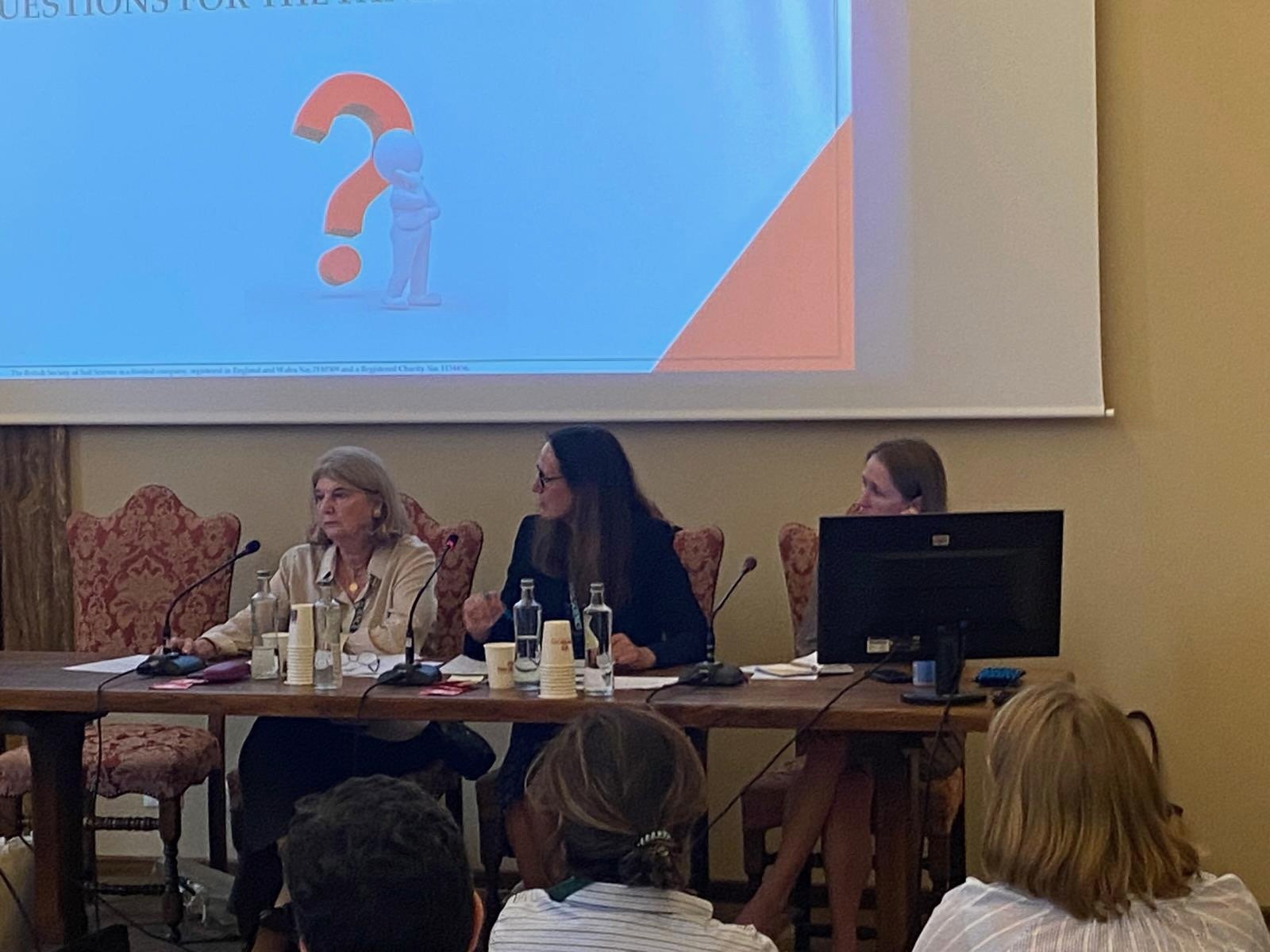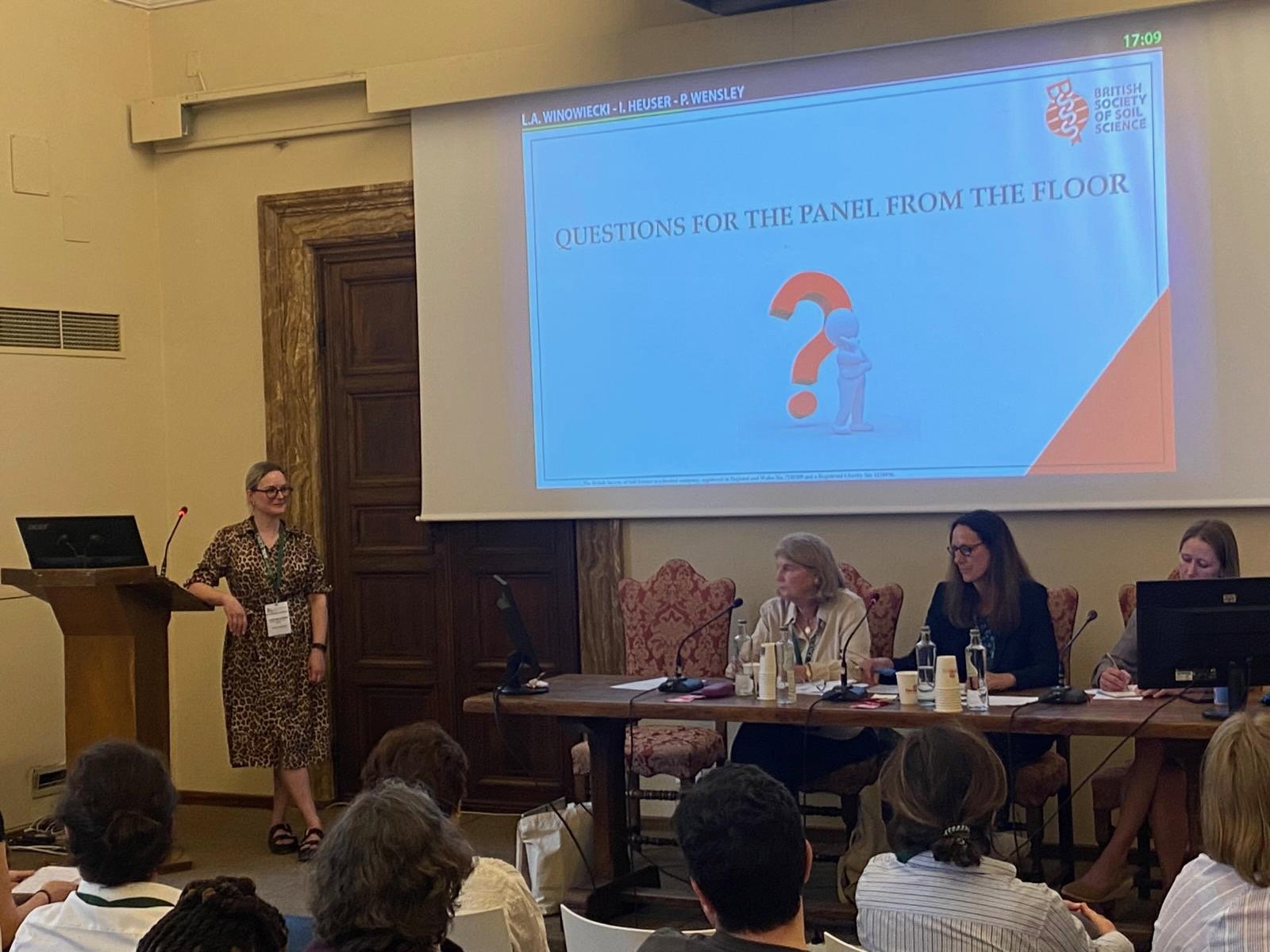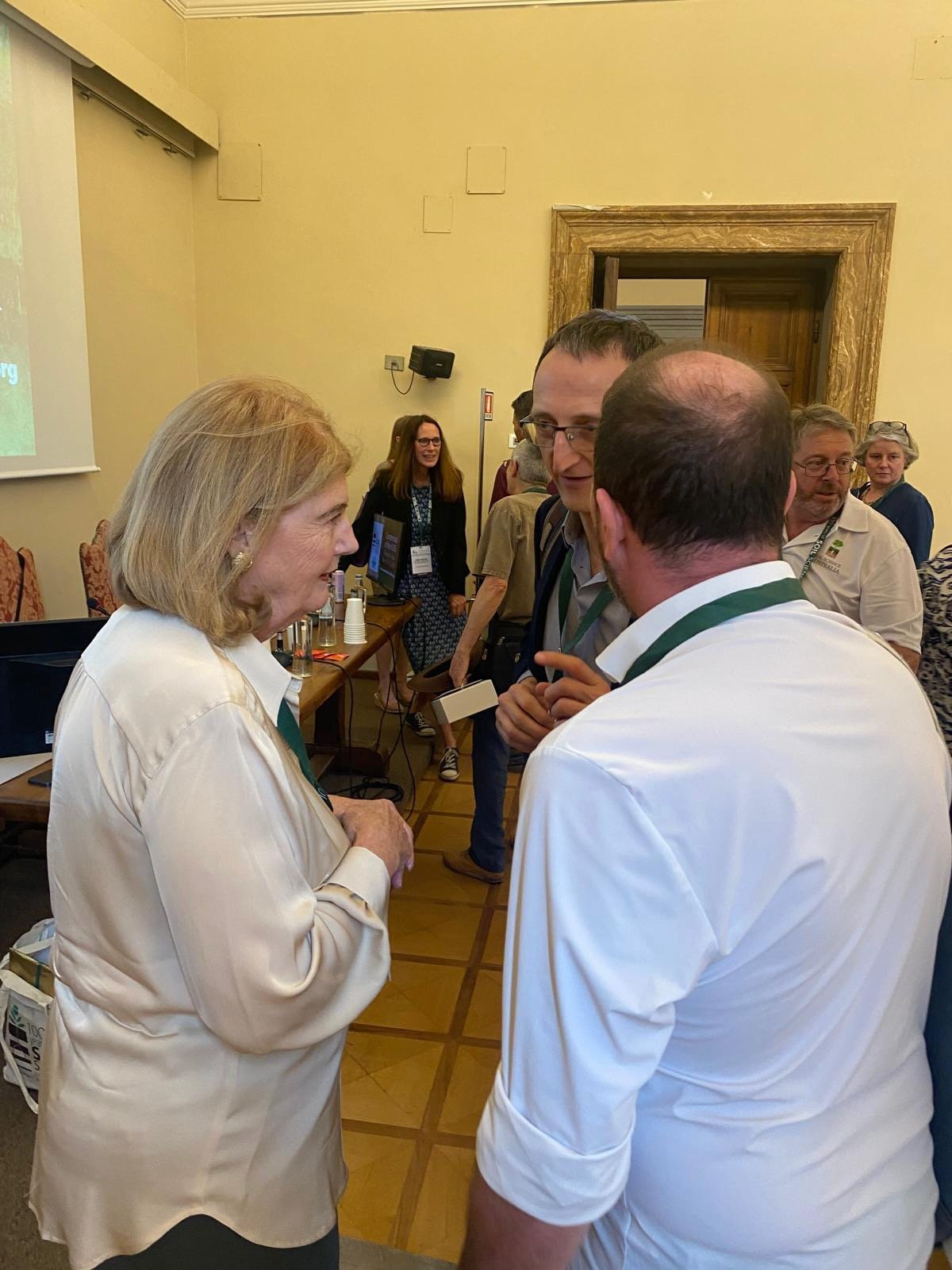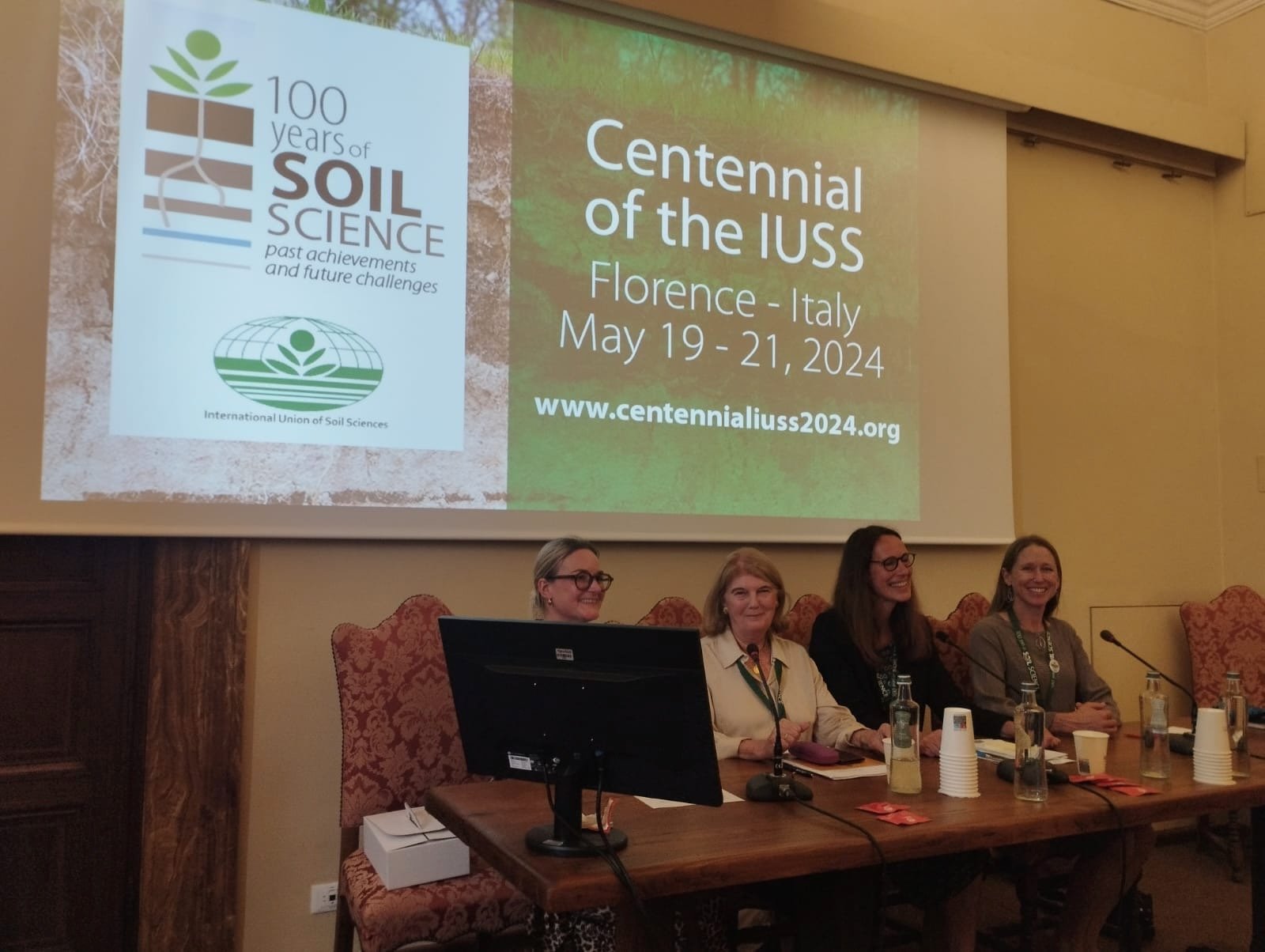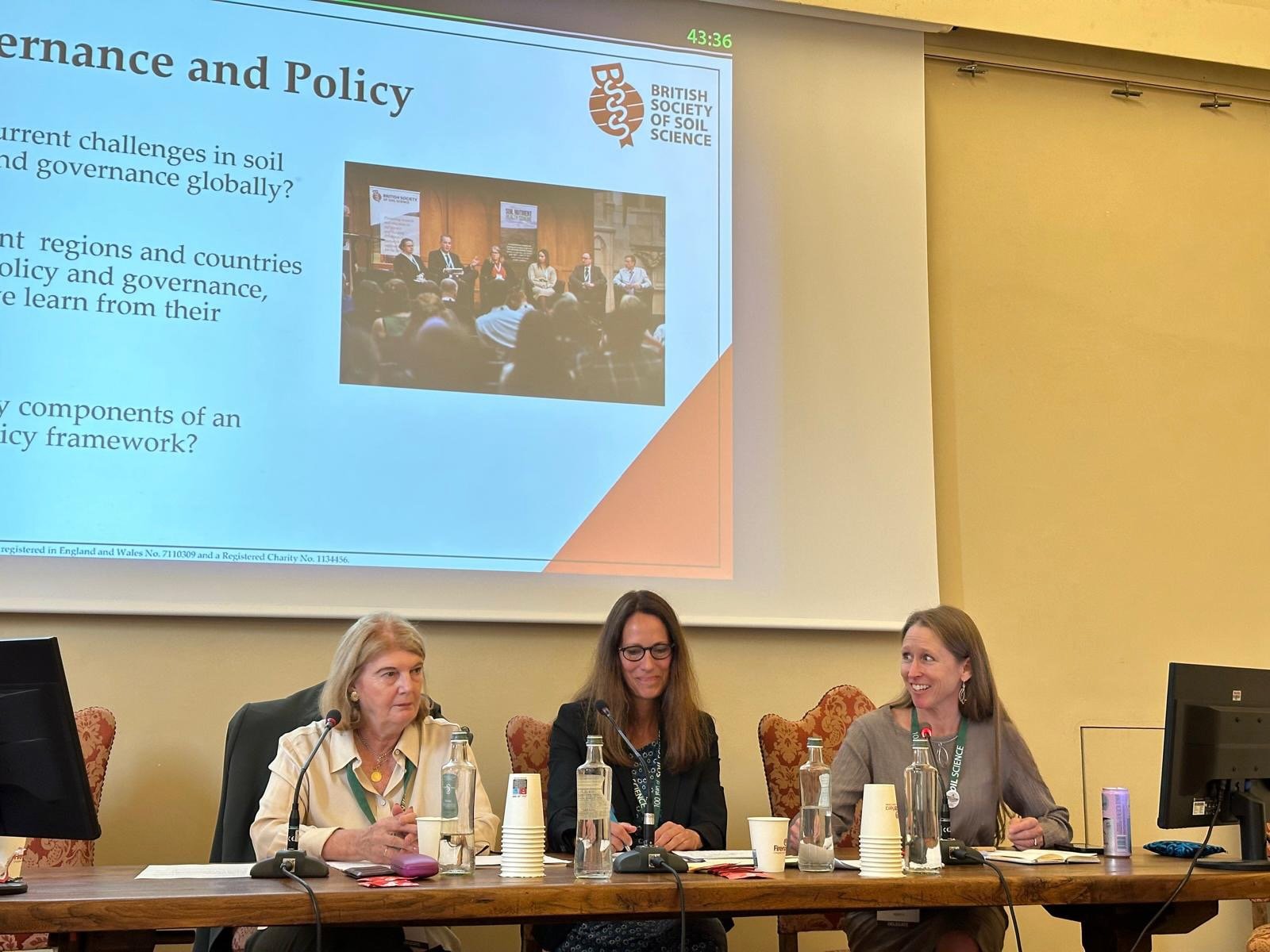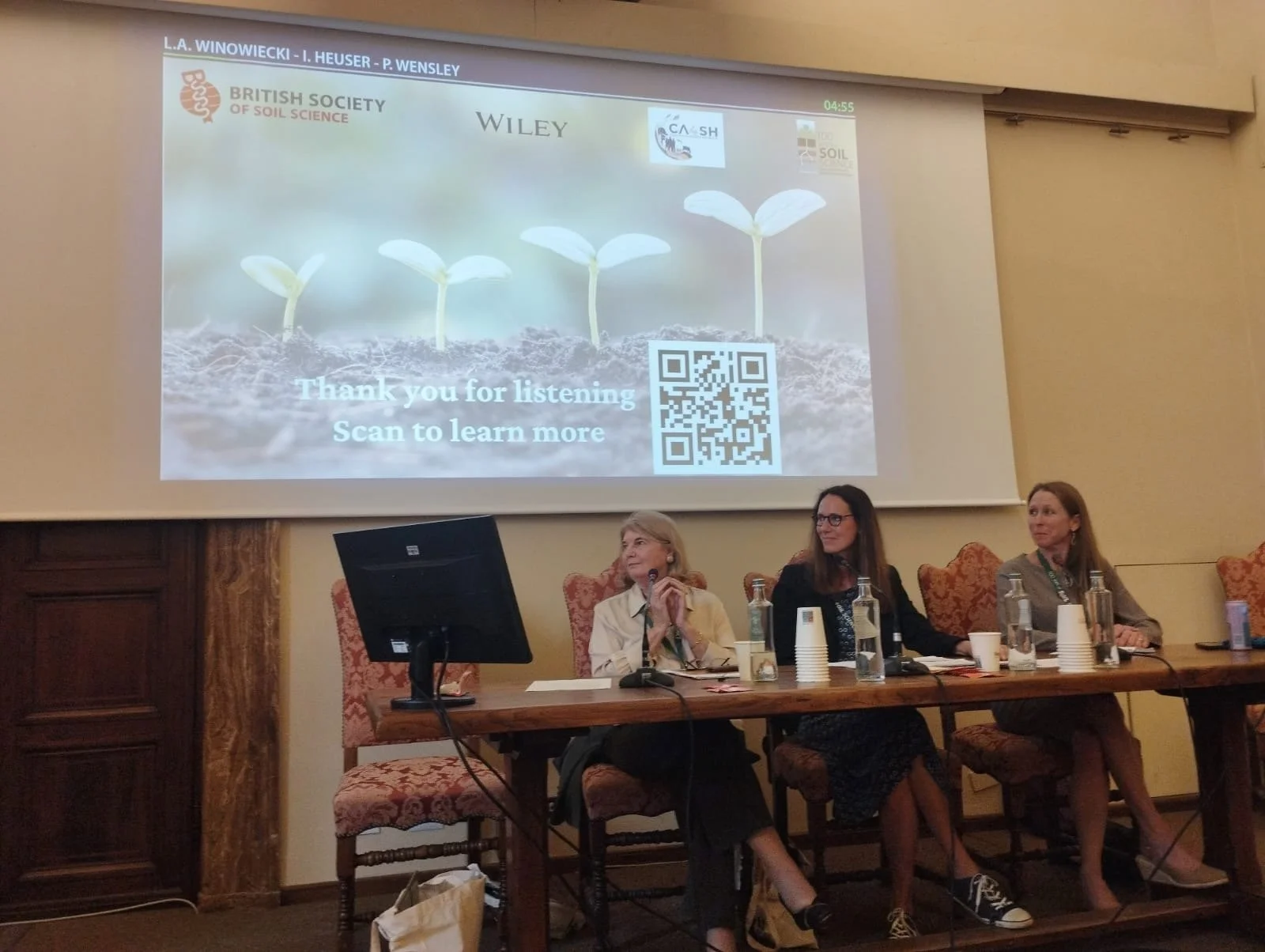Soil health for people and planet: Advancing policy and increasing engagement for a sustainable future
At the recent IUSS Centennial Celebration and Congress held in Florence, Italy, on May 19-21, the British Society of Soil Science (BSSS) hosted a fireside chat focused on the pivotal role of policy in addressing soil degradation and promoting sustainable land management. Chaired by BSSS president Dr Jack Hannam, the chat drew insights from former National Soils Advocate of Australia Honourable Penny Wensley; CA4SH co-Lead Dr Leigh Winowiecki; and the IUCN World Commission’s Dr Irene Heuser. Specific attention was given to current limitations as well as available tools for integrating soil health discussions into national and international policy.
According to all the speakers, soils are only marginally mentioned in international frameworks and conventions, and typically with a narrow focus on greenhouse gases. There is a pressing need to expand this focus to include ecosystem restoration and biodiversity. Ideally, suggested Heuser, fragmented references to soils should be integrated into a comprehensive soil protection convention.
The panel further emphasized the issues of fragmented government structures at the national level, as well as divergent views across different geographical regions. Wensley highlighted the need for bold and ambitious governmental approaches that are national, long-term, and multidisciplinary. However, the panel also considered the shortcomings of such, noting that governments are often reluctant to adopt new legislation and conventions, preferring incentive-based approaches ("carrots") over regulatory mandates ("sticks").
The need for science to support policy through clear and efficient communication was a recurring theme throughout the discussion, given that the lack of accessible data for policymakers can be exploited by lobbyist groups to hamper new soil legislation. Winowiecki recommended that, in order to be most effective, scientific bodies should work directly with experts involved in policy formulation, such as those writing Nationally Determined Contributions (NDCs). Similarly, sharing data with the broader public could contribute to drawing governmental attention to soil health.
The fireside chat concluded with a powerful message from Wensley: "Be ambitious, determined, and aware that it is a long call." This underlined the need for firm commitment and perseverance in the pursuit of soil health policies. Governments must adopt integrated, science-based, and ambitious policies that promote long-term soil conservation and sustainable management practices.
The fireside chat made clear the critical intersection of policy, science, and governance in addressing soil health. It is imperative to advance soil health agendas through robust policy frameworks, effective governance mechanisms, and innovative strategies. By doing so, we can safeguard soil health, promote sustainable land management, and ensure a resilient and sustainable future for all.



